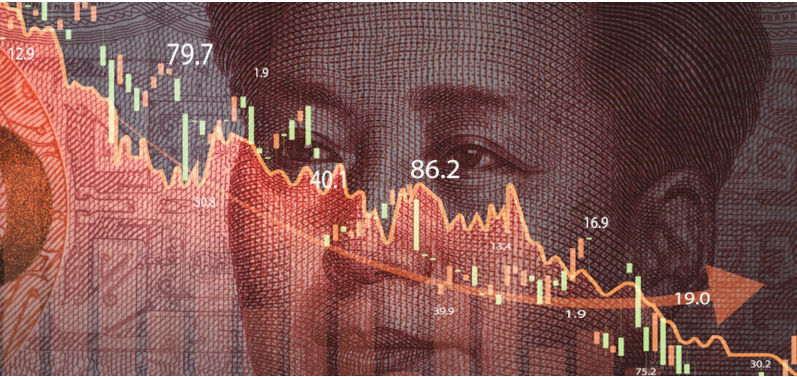China: learning from Canute
January 28, 2024
Regularly, Western media claims that Chinas run is near an end and that collapse is just around the corner. So constant has this become, it is like a broken gramophone record. Recently predictions of this collapse have been couched around the indebtedness of some major players in the Chinese property market. The inevitable collapse, however, never comes.
Indeed, persistent strong growth continues, not at past double digit figures, but still at around 5%, as with this years growth of 5.2%, meaning Chinas GDP reached 91.3 trillion yuan (US$12.48 trillion).
It is good to put those figures into perspective. 10% growth means an economy doubling every seven years. China has experienced that growth rate for some 35 years. That means the economy grew some 32 fold from the opening up in 1978 under Deng Xiaoping, to around 2013. Clearly the larger the economy is, the less able it is to grow at such spectacular figures. Still at 5% growth the Chinese economy doubles every 14 years! In comparison, the OECD using inflation adjusted Real GDP puts the U.S. growth rate being 1.6% (2023) 1% (2024) with the Australian economies projected growth rates respectively being 1.8% and 1.4%.
Using another measure, Purchasing Power Parity, PwC finds similar, showing China already larger than the U.S. 18.9% of global PPP to 15%, with growth rates being respectively 5.2% (2023) 4.4% (2024) and 2.3% (2023) 1.5% (2024). Australia is 1.8% (2023) 1.6% (2024).
So much for the stagnant Chinese economy, ready to fall!
Indeed, the top three growth economies are all in Asia, India (growing at 6% (2023) and then 7% (2024), China 5.4% and 5.1%, and Indonesia 4.7% and 5.1%.
Good news for Australia one would think, except for our politicians, seemingly lacking atlases, believing we exist in some white North Atlantic locale between New York and London.
The West, particularly the U.S., feeling under challenge, is desperately trying to put a canker in this Chinese growth. Using sanctions and bans on technology transfers they are increasingly desperately, but vainly try to maintain their hegemonic status. Little wonder the U.S feels challenged. At a current growth rate of around 1.5% in 14 years, its economy will have grown around 25% while that of China will have doubled!
To get perspective, a long term look helps. Over time, the change has been stupendous. Using purchasing power parity in 1980, the United States share of global GDP was 21.7%, Chinas 2.3%, (around 10% of the U.S.). By 2014, astonishingly, Chinas share was larger, with the gap continuing to grow.
It is little wonder that the U.S. and much of the West is caught somewhere between denial and shock. With U.S. President, Joe Biden, still speaking of irreplaceable U.S. exceptionalism, clearly there is a clear disconnect with reality.
Even in Australia, due to a whipped up Sinophobia by politicians and media, many fear Chinas rise and wish to thwart it. To think that Australia could do anything to stop that rise however, is farcical. Former Australian Prime Minister Paul Keating sarcastically responded to such charging that anything Australia could do was like throwing toothpicks at a mountain.
Of course one could ask why would Australia want to stop the rise of China, something which has given three decades of economic benefits. The answer can only be due to its being so tightly enmeshed in U.S. military strategy. Genuine Australian sovereignty has been progressively lost to the U.S., something accelerating since the Gillard government agreed to base U.S Military Forces in northern Australia. Seemingly, we have lost the capacity due the closeness of the U.S. alliance, to make decisions in our own interest.
Most dangerously, we are being drawn ever deeper into U.S. military strategy to prevent that rise. U.S. strategy doesnt rule out a nuclear response and it is very likely that any military response to Chinas rise will involve Australia-based nuclear weaponry being used.
Australian politics is in denial as to acceptance that the Anglophone era is now past. That refusal to face reality is already costing Australia dearly, both economically and diplomatically. Those costs will increase. They are made most extreme and dangerous by Australias foolish involvement in military planning against China.
To employ another image used by Keating, trying to stop Chinas rise is like King Canute attempting to stop the rising tide. Of course, the point of that story, is that Canute, for all his power and desire, knew he couldnt.
One hopes our politicians and commentariat learn that lesson of Canute.

